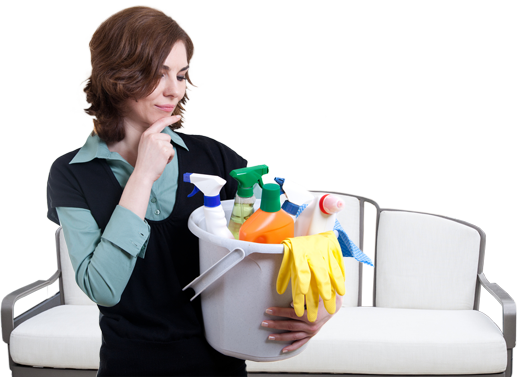Transform Your Home with Pet Odor Removal
Posted on 17/08/2025
Transform Your Home with Pet Odor Removal
If you share your home with furry companions, you already know the countless joys and unconditional love pets bring into our lives. However, owning pets also involves tackling one persistent problem: pet odors. These unwanted smells can linger in carpets, furniture, and even the air, making your living space less inviting. The good news? You can completely revamp your living environment by mastering effective pet odor removal methods. This comprehensive guide will help you transform your home with pet odor removal strategies that are effective, safe, and long-lasting.

Understanding Pet Odors: Why Do They Linger?
Before delving into solutions, let's first explore what causes pet odors to be so tenacious:
- Urine and Fecal Accidents: Even after cleanup, proteins and ammonia compounds in pet urine and feces can seep into absorbent surfaces, resulting in persistent smells.
- Pet Dander: Dead skin cells from pets (especially cats and dogs) can become airborne, settle on surfaces, and contribute to a musty, 'doggy' odor.
- Oily Fur: Sebum (natural oil secreted from pets' skin) can rub off onto upholstery, bedding, and carpets, causing odors to accumulate.
- Saliva and Vomit: Drool and vomit contain organic matter that, if not cleaned properly, encourage bacteria growth and unpleasant aromas.
- Litter Boxes and Cages: Neglecting regular cleaning of these areas results in strong, lingering smells unique to each species.
Understanding the origins of these odors is the first step towards comprehensive pet scent elimination.
The Impact of Pet Odors on Your Home
Pet odors can negatively affect your home's ambiance and hygiene. Over time, these smells can embed themselves in fabrics, wooden floors, and air ducts. Some of the impacts include:
- Reduced Indoor Air Quality: Persistent pet smells can contribute to poor air quality, triggering allergies or respiratory discomfort for family and guests.
- Negative Impression: Unpleasant odors can leave a lasting poor impression on friends, relatives, and potential home buyers.
- Stubborn Stains: Odor-producing accidents can leave lasting discolorations in carpets and upholstery if not effectively treated.
Successfully removing these odors doesn't just improve comfort; it also protects your property value and health.
Essential Steps to Remove Pet Odors from Your Home
Ready for a fresh smelling home? Here's how to completely transform your atmosphere with robust pet odor removal strategies:
1. Immediate Clean-Up of Accidents
Time is of the essence. The faster you clean up after a pet's accident, the less likely odors and stains will settle. Blot up urine with paper towels, then rinse the area with cold water. Avoid rubbing, which can push contaminants deeper into fibers.
2. Use Enzymatic Cleaners
Ordinary soaps and detergents may not cut it when it comes to pet scents. Instead, use enzyme-based cleaners that break down the proteins and ammonia compounds responsible for persistent odors.
- *These specialized products digest organic molecules, eliminating both stains and smells at their source.*
- Apply generously, and allow the cleaner to soak in according to package directions.
- Repeat if the odor persists--deep-seated contamination may need multiple applications.
3. Deep Clean Carpets and Upholstery
Carpets and soft furnishings tend to trap and retain pet smells. Regular vacuuming helps, but a deep steam or professional cleaning is vital for thorough pet odor removal.
- Invest in a high-quality carpet cleaner or rent a commercial machine.
- Use pet-specific shampoos or solutions containing enzymes.
- Allow surfaces to fully dry, as moisture can cause mildew and compound odor issues.
4. Wash Pet Bedding and Toys Frequently
Every item your pet uses absorbs oils and odors. *Launder bedding, soft toys, and washable covers weekly* using hot water and odor-neutralizing detergents. For unwashable toys, wipe them with a solution of water and vinegar and sun-dry for freshness.
5. Refresh and Disinfect Hard Surfaces
Vinyl, tile, and wood floors benefit from regular mopping with a mild cleaning solution. Avoid products containing ammonia (which mimics the scent of urine) as it can confuse pets and promote future accidents. Instead, opt for:
- Vinegar and Water: A 1:1 mixture is safe and effective for breaking down odors.
- Baking Soda: Sprinkle on surfaces, let sit for 15 minutes, then vacuum or wipe clean.
- Commercial pet odor removers formulated for hard surfaces.
6. Tackle Airborne Odors
Sometimes, when you can't pinpoint the source, it's the air itself that's holding onto those stubborn pet smells. Here's how to clear the air:
- Air Purifiers: Use devices equipped with HEPA filters and activated carbon to trap dander and neutralize odors.
- Regularly replace HVAC filters to prevent circulation of pet scents.
- *Open windows frequently to allow fresh air to flush through your home.*
- Place bowls of baking soda or activated charcoal strategically throughout the house for continuous deodorizing.
7. Maintain Litter Boxes, Cages, and Pet Areas
An often-overlooked source of pet odors is the animal's own habitat. To prevent smells from escaping into your home, take the following steps:
- Scoop litter boxes daily and completely change litter at least once a week.
- Wash pet cages, trays, and food bowls regularly with hot water and mild soap.
- Use odor-absorbing liners or mats beneath or around litter boxes and cages.
Natural DIY Solutions for Pet Odor Removal
Sometimes, the best ways to eliminate pet odors are found right in your kitchen. Avoid harsh chemicals by turning to these safe, natural options:
- Baking Soda: Sprinkle on carpets, upholstery, or pet bedding, leave overnight, and vacuum thoroughly. Renowned for its odor-neutralizing powers.
- White Vinegar: Mix with water (50/50 ratio) for a safe, effective cleaning and deodorizing spray suitable for most surfaces.
- Lemon Juice: Add some to your cleaning regime for a fresh scent and antibacterial properties.
- Hydrogen Peroxide (3%): Works well on stains and odors but test for colorfastness on hidden areas before using widely.
*These eco-friendly solutions are not only effective but also gentle on your home and safe for your pets.*
Long-Term Odor Prevention Tips
Once you've tackled existing scents, you'll want to keep your home smelling clean. Preventing future pet odors is about routine and diligence:
- Groom your pets: Regular brushing and bathing minimize loose fur and dander.
- Wash pet bedding weekly, and replace or deep clean soft toys monthly.
- Consider air purifiers in rooms where your pets spend the most time.
- Bathe your pet according to vet recommendations, and use dry shampoo or grooming wipes in between baths.
- Keep windows slightly open (weather permitting) for natural ventilation.
Consistency is the key to a fresh-smelling, pet-friendly environment!
When to Seek Professional Help
Sometimes, no matter how diligent you are with cleaning, pet odors persist. If smells linger after you've tried every method, it may be time to enlist professional help:
- Professional carpet cleaning penetrates deep into fibers, extracting embedded contaminants.
- Upholstery specialists can clean sofas, chairs, and mattresses without damage.
- Odor remediation services use specialized equipment to treat air ducts, subfloors, and ventilation systems.
*If you're preparing to sell your home, professional services are often the quickest way to guarantee a neutral, inviting scent for potential buyers.*
Benefits of Transforming Your Home with Pet Odor Elimination
- Healthier Air: Removing dander and bacteria lowers allergy and asthma risk for all occupants.
- Enhanced Comfort: A fresh environment is welcoming for both you and your guests.
- Higher Home Value: Odor-free homes sell faster and at better prices.
- Long-Lasting Cleanliness: Deep, ongoing odor control means your cleaning efforts last.
- Happier Pets: Clean, odor-free spaces can minimize the risk of pets re-soiling the same spot.

Frequently Asked Questions (FAQs) About Pet Odor Removal
What is the most effective way to remove pet urine odor from carpets?
Enzymatic cleaners are widely considered the most effective solution, as they break down odor-causing molecules at the source. Always follow with a thorough rinse and drying process.
Is it safe to use bleach or ammonia to clean pet odors?
*No*, bleach and ammonia are not recommended for cleaning pet stains. Ammonia can mimic the scent of urine, while bleach is harsh and can discolor surfaces.
How often should I clean litter boxes or pet cages?
Scoop litter boxes at least once daily and conduct a full change and wash each week. Pet cages should be cleaned weekly, or more often if you notice strong odors.
Do air purifiers really help remove pet odors?
Absolutely! *Air purifiers with HEPA and activated carbon filters* are effective at trapping dander and neutralizing airborne smells.'
Your Home, Transformed: Final Thoughts
Transforming your space with pet odor removal techniques isn't just about fresh scents--it's about creating a clean, healthy, and truly welcoming environment for you, your family, and your pets. Choose the strategies that best fit your lifestyle, and enjoy the peace of mind that comes with a fresh, inviting home.
Love your pets and love your living space--proactive odor removal is the secret to enjoying both to the fullest.
For more tips on removing pet odors and maintaining a healthy home, bookmark this guide and share it with fellow pet owners who could benefit from professional and DIY solutions alike!




